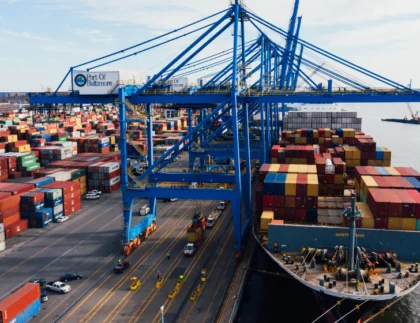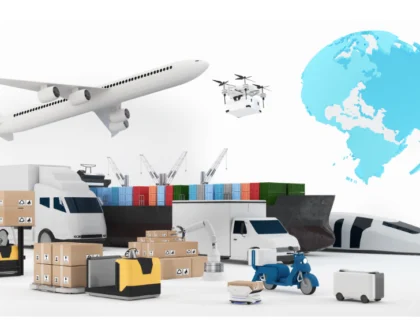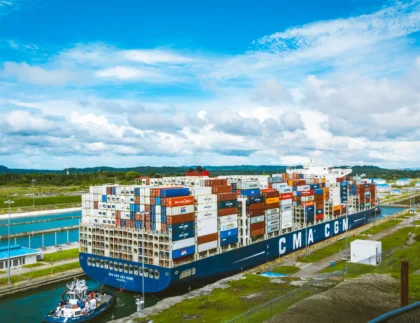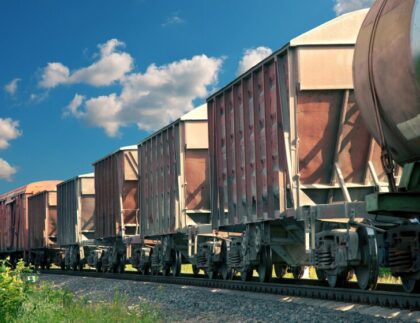
The African Continental Free Trade Area (AfCFTA), launched in 2021, is one of the most ambitious trade agreements in the world.
By creating a single market that connects 1.4 billion people across 54 African nations, AfCFTA is designed to boost intra-African trade routes, encourage industrialization, and reshape the continent’s logistics and freight sectors.
Among its many impacts, the transformation of cross-border trucking in Africa, port efficiency, and freight forwarding is particularly significant. AfCFTA and Its Logistics Impact
Historically, Africa’s trade infrastructure has been fragmented. Border delays, inconsistent customs rules, and poor connectivity often slowed down the movement of goods across the continent. With AfCFTA, the introduction of customs harmonization and trade facilitation measures aims to reduce paperwork, align tariffs, and speed up cargo clearance.
This is a major step for logistics operators. Reduced barriers mean lower transport costs, faster delivery times, and improved predictability in emerging African supply chains. For businesses, this translates into greater competitiveness both within Africa and in global markets.
Growth in Africa’s Freight Forwarding Industry
The freight forwarding sector is experiencing a clear shift. According to trade experts, Africa freight forwarding growth is accelerating as multinational logistics firms and local players expand operations to take advantage of new trade flows. Demand for integrated logistics solutions—spanning trucking, warehousing, and last-mile delivery—is rising, particularly in landlocked countries such as Uganda, Rwanda, and Mali.
E-commerce is also contributing to this trend. Platforms like Jumia are increasingly relying on efficient freight and logistics services to move goods across borders. AfCFTA makes these movements smoother by lowering non-tariff barriers and aligning customs processes.

Reimagining Cross-Border Trucking in Africa
Cross-border trucking in Africa has long faced challenges: high fuel costs, multiple checkpoints, and inconsistent regulations between countries. AfCFTA is beginning to change this landscape. By streamlining border procedures, it reduces long delays at checkpoints—sometimes cutting waiting times from days to just hours.
This is particularly impactful for perishable goods, like fresh produce and pharmaceuticals, which require speed and reliability. As corridors like the North-South trade route or the Abidjan–Lagos coastal corridor become more efficient, trucking companies are scaling up fleets and investing in better tracking technologies.
Tackling African Port Congestion
Africa’s ports—from Lagos to Mombasa—have historically been bottlenecks in the supply chain. African port congestion has not only increased shipping costs but also discouraged investment. AfCFTA indirectly addresses this issue by encouraging logistics investments in Africa. Governments and private players are expanding port capacity, introducing digital clearance systems, and improving hinterland connections to ensure smoother freight flows.
For instance, the modernization of the Port of Durban and expansion projects at Tema Port in Ghana are aligned with the vision of handling increased trade volumes under AfCFTA.
Emerging Supply Chains and Trade Facilitation
One of the most powerful outcomes of AfCFTA is the creation of emerging African supply chains. Instead of exporting raw materials to Europe or Asia, African nations are now incentivized to trade with each other in semi-finished or finished goods. For example, leather from Ethiopia can be processed into shoes in Kenya and exported to Nigeria—all within the continent.
To make this work, AfCFTA trade facilitation policies are critical. These include digital customs systems, standardized rules of origin, and simplified documentation. Such steps are reducing trade friction and creating opportunities for regional manufacturers and logistics providers.

Logistics Investments and Global Corridors
The reshaping of freight is also tied to major infrastructure and capital inflows. Logistics investments in Africa are expanding rapidly. From road and rail upgrades to warehousing and dry ports, both governments and private investors see AfCFTA as a catalyst for modern supply chains.
Additionally, Africa’s position as a trade hub between continents is being reinforced. Africa-Europe freight corridors are becoming increasingly important, with ports in North and West Africa serving as gateways for exports to Europe. Improved efficiency in intra-African freight strengthens these corridors, making Africa a more reliable partner in global supply networks.
Challenges Ahead
Despite the progress, challenges remain. Infrastructure gaps, corruption at borders, and varying levels of digital readiness continue to hinder seamless trade. African port congestion has not disappeared overnight, and many customs administrations still face resource shortages. Moreover, political instability in certain regions poses risks to uninterrupted trade.
Yet, the momentum behind AfCFTA is undeniable. Its gradual implementation, combined with large-scale investments in logistics, suggests that these challenges can be addressed over time.

Conclusion
The African Continental Free Trade Area is more than a trade pact—it is a transformative force for logistics and freight across the continent. By enabling customs harmonization, strengthening intra-African trade routes, and attracting logistics investments in Africa, AfCFTA is building the foundation for integrated, resilient, and competitive supply chains.
As cross-border trucking in Africa becomes faster, freight forwarding growth accelerates, and Africa-Europe freight corridors expand, the continent is positioning itself as a key player in global commerce. While obstacles remain, AfCFTA is clearly reshaping cross-border freight and unlocking Africa’s potential as a logistics powerhouse of the future.











